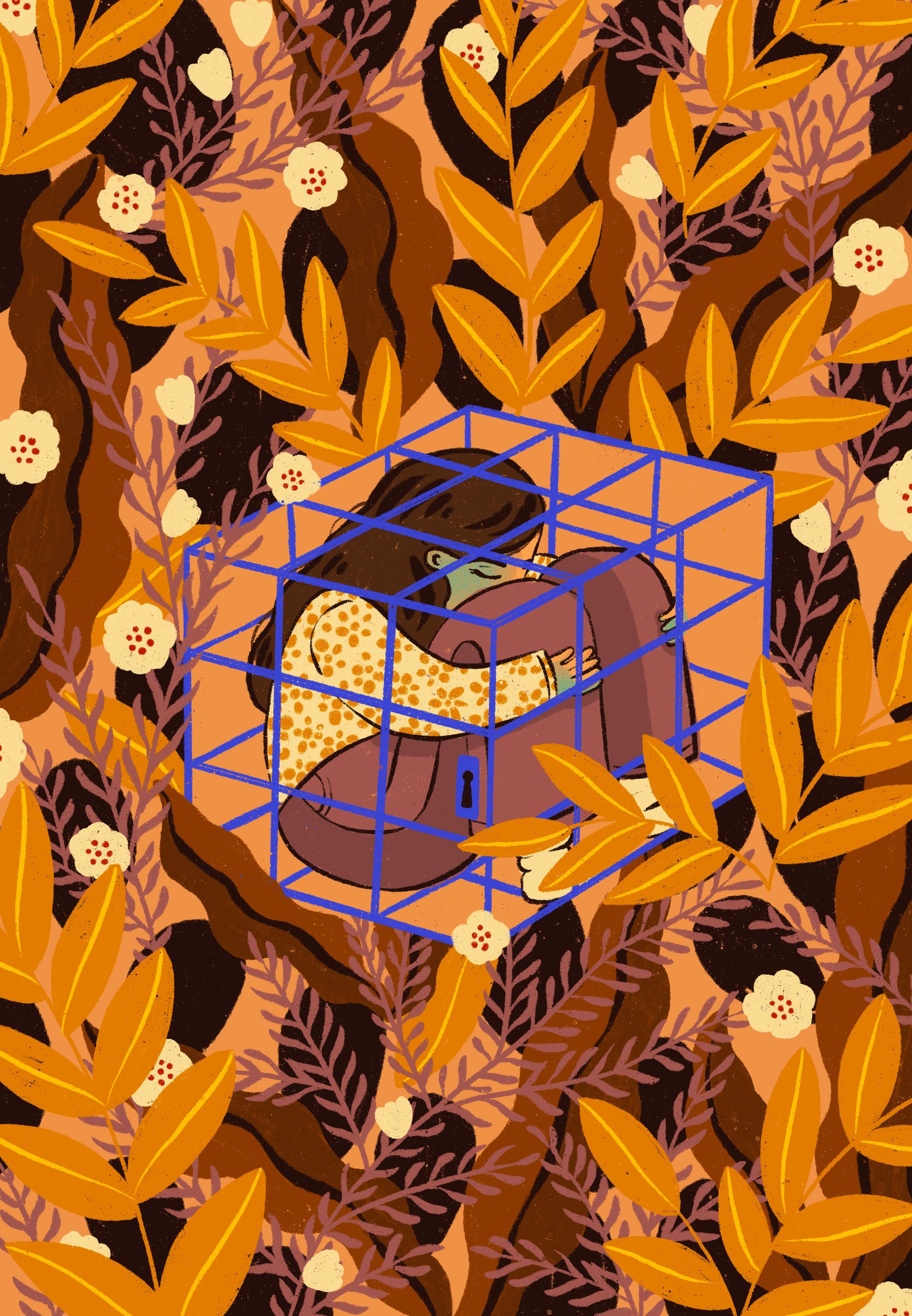
3 minute read
Why Self Help Books Are a Scam
WORDS BY Leeann Bushnaq @artist_1on1
ART BY Emma Lucas @emlucasart
Advertisement
Am I the ideal woman? Am I the perfect employee? Did I do this right? Could I have done this better? When you’re not engrossed in the chaos of work, are you constantly thinking about what’s to come? Plotting your next move and wondering how you can maximise your efficiency? Our idle thoughts are now predisposed to devise our next strategy for fulfilment and success. Like a hamster on a wheel, it just never stops. Perhaps it’s a compulsion, a transition period or a relationship as the cause of your discontent. Or maybe there’s no categorical problem in your way, but you’re merely seeking a nudge in the right direction? Now meet the self-help book. The 200-page book written by the god of wisdom. The same book that finds a homogenous solution to your nuanced reality. Rubbish. Hustle culture is rampant in our society, and we’re the victims. We worship the grind, the high of exhaustion and the thrill of perfection. That’s where selfhelp capitalises on our vulnerabilities. It validates the idea that our worth comes from our output. Self-help books epitomise the idea of, “create a problem, then sell a solution.” Hustle culture ignites the fire, and the self-help genre masks itself as the hero putting the fire out. Self-help cashes in on the unrealistic expectations in society. It drives people to the ground, burns them out, and is then there to pick up the pieces. It’s there to ‘fix’ the dissonance between our intentions and our actions. But what does it really do? It makes our currency one of productivity. It feeds us back into an inescapable loop. One of hustling, thinking about hustling, then driving our ego by making it known that our hustle equates to our achievement. There’s an irony in treating the self-help book as a bible. Where we as a contemporary society will only settle for tailored solutions to solve our content consumption crises, *cough* Spotify curated playlist on repeat *cough*, we don’t seem to hold our own lives and mental health in the same esteem. How is it that we rely on a book that claims a generalised solution will dig us out of our deepest, darkest holes, yet we want the most personalised recommendations to relieve us of our boredom? As if boredom is worse than a break-up, or harder than transitioning into a new phase of life. Self-help books preach to their readers nuggets of wisdom. They gain their capital from posing as transferable teachings, that once practiced, can prove life-altering. Whilst they may do just that, the connotation of guilt also becomes heavily ingrained within these books. We’re told to care more, then we’re told to care less, however either way, we feel obligated to take some action. We’re never told that these moments of confusion are fleeting. The spectrum of our lived experience is being diluted by the self-help book. A standardised, utopian approach to getting ‘back on track’ is being marketed to us. Self-help books may be the solution for some, but I see them as a dime a dozen. I may not be the ideal woman, or the perfect worker. I may have missed the mark and I may be imperfect in my endeavours, but I will be my own judge. I won’t let the same culture that values my worth through the scale of my achievements be the one to falsely tell me how to unlock my potential. If I do, then it’ll trap me until I’m jaded. I’m not a slave to hustle culture, and I certainly won’t let my worth be dictated by a book that’s telling me I try too hard, or that I don’t try enough.










